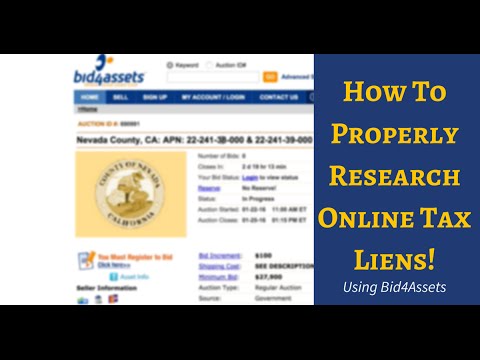Last Updated on September 9, 2025
Table of contents
Ethical Tax Deed Investing: Help Homeowners and Grow Your Wealth
Buying properties at tax deed auctions gives investors a way to acquire real estate at a discount while offering struggling owners another chance. Instead of feeling guilty, understand that the county will take the home anyway. By stepping in, you can create a win‑win: you buy the property and then work out terms that let the family stay or buy it back.
What is a tax deed sale?
A tax sale happens when a property owner falls behind on taxes and the county auctions the property to recover the debt. There are two types: tax lien sales (where unpaid tax liens are sold) and tax deed sales (where the property itself is sold). In a tax deed sale, the highest bidder obtains ownership subject to any redemption period set by state law.
How do tax deed auctions work?
Each state and county has its own rules. Generally, the steps are:
- The county lists properties with unpaid taxes.
- Investors bid at a public auction.
- The highest bidder pays the tax debt and receives a deed after a waiting period.
- The original owner may have a redemption period to pay back taxes plus interest and reclaim the property.
For example, in Florida owners have at least two years to redeem before a deed sale, whereas in Texas most non‑homestead properties can be redeemed within six months North Carolina uses a deed system with no redemption period Knowing these rules is crucial when deciding where to invest.
Can you invest and still help the homeowner?
Yes. The county will seize the property regardless. By buying the deed, you can:
- Offer the original owner a chance to buy the property back through an installment plan.
- Create a rental agreement so they can stay in their home while you earn rent.
- Sell or rent the property on the open market if the owners decline assistance.
These options give families an alternative to eviction and let you earn income ethically
Why choose tax deed investing today?
With many homeowners unable to pay taxes, tax deed auctions present opportunities to acquire land or houses below market value. Because you buy outright, you can renovate and resell, hold for appreciation or rent it out. Unlike tax lien certificates (which pay interest), deeds give you full title once redemption deadlines pass. Returns can be substantial, but success depends on careful research and patience
How to select the right property
Perform due diligence before bidding. Follow these steps:
- Build your property list – Download the county auction list, check assessed values and plot addresses to visit
- Match your budget – Decide whether to target higher‑value houses or lower‑priced lots; include fees and redemption costs in your budget
- Inspect in person – Visit properties to assess condition; online photos can hide major issues
- Check redemption periods and liens – Understand state law and ensure no hidden liens remain
As an example, one student bought a property for $5,100 and later discovered comparable homes were worth around $90,000 because he confirmed there were no other liens and visited the property Careful research turned a small bid into big equity
Building an ethical tax deed strategy
Here are some tips to invest responsibly:
- Educate yourself – Learn how tax liens and deeds work. Our free mini course explains the basics and risks.
- Be patient – Returns often take months or years; redemption periods vary, and legal steps can be slow
- Offer flexible terms – When you acquire a property, consider letting the previous owners pay you back gradually or rent. This helps them and creates cash flow.
- Diversify across counties and states – Each jurisdiction has different rules and rates; spreading your investments reduces risk.
- Stay compliant – Follow auction procedures and local laws. If unsure, consult an attorney or experienced investor
FAQs
Yes. Counties usually require certified funds at the time of purchase
Yes. Tax deed investing can start with modest capital, but you must research properties, redemption rules and local laws
If there’s a redemption period and the owner pays back taxes plus interest, your principal and any statutory interest are returned. If they do not redeem, you can take title.
Conclusion & next steps
Tax deed investing gives you the chance to acquire properties far below market value while offering homeowners a second chance. By studying state laws, inspecting properties and practicing patience, you can build steady income and help families avoid displacement. For a deeper look at property selection, read our guide on picking the right properties for tax deed sales To build confidence and meet like‑minded investors, explore partnering with us on deal and learn the #1 trait every successful tax lien and deed investor needs






